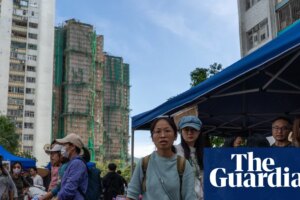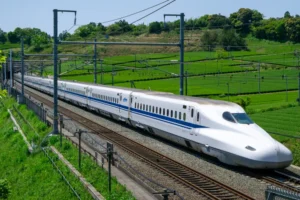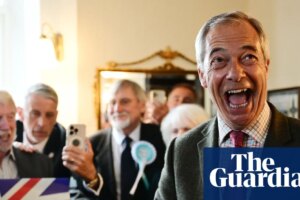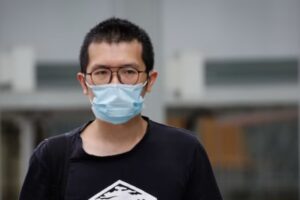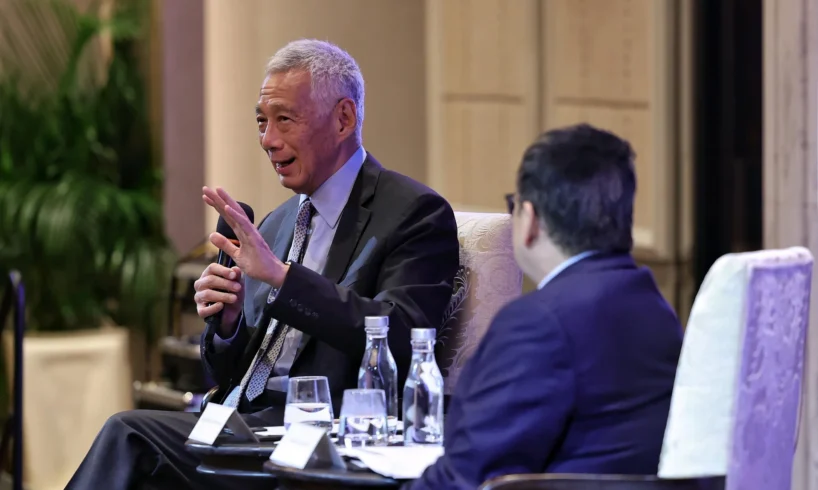
[SINGAPORE] The impact of US tariffs will last beyond US President Donald Trump, as economic policies cannot be easily reversed, said Senior Minister Lee Hsien Loong on Tuesday (Jul 15).
Asked if the impact of US tariffs might be temporary, SM Lee replied firmly: “I do not believe that.
“It will not remain like this, but it will not go back to the status quo ante,” he said in a dialogue at the Economic Society of Singapore’s annual dinner.
“In trade policy, economic policy, once you make a move, you can’t take it back. There are consequences.”
If future US leaders try to roll back the tariffs, they will face objections from businesses that relied on those protections and have vested interests, he said.
He noted that former US president Joe Biden did not overturn earlier tariffs that Trump imposed on China in his first term.
A NEWSLETTER FOR YOU
Friday, 8.30 am
Asean Business
Business insights centering on South-east Asia’s fast-growing economies.
“It’s politically not possible because then you will be attacked: ‘You know, your predecessor did this to protect us. Why are you unilaterally giving away a chip? You must bargain for something.’”
As for what the new framework for the global economy might be, SM Lee said: “I suppose the best framework is the world temporarily minus one.”
This means the framework “mostly remains”, but the US is trying to change the rules – even as it “still has to do business with the world”. But he referred to it as “temporary”, because the US may eventually return and “participate again in a more open and constructive way”.
Meanwhile, like-minded countries can collaborate through platforms such as the Regional Comprehensive Economic Partnership and the Comprehensive and Progressive Agreement for Trans-Pacific Partnership, he said.
“We should try to make the multilateral framework less bad, rather than write it off.”
The economics of climate change and policymaking
Geopolitics was one of three themes in the dialogue, alongside climate change and domestic policy issues such as healthcare costs and the Certificate of Entitlement (COE) system.
On climate change, SM Lee said that Singapore aims to be “a good global citizen” and do its part, even though it does not contribute much to global emissions.
Singapore should try to do this in a “rational way”, he added, pointing to its carbon tax.
This may cause some businesses to reconsider their plans if they cannot cut emissions, he noted. “But if we are serious about wanting to peak before 2030 and to decline progressively after that, then there’s really no alternative,” he said, referring to Singapore’s emission targets.
“If everybody can do it without pain, then you probably haven’t done very much,” he quipped.
On domestic policy, SM Lee stressed that many ministries – not just economic ones – must understand economic forces such as incentives.
At the same time, there are areas where the government must intervene so that market forces do not diminish social outcomes, such as healthcare.
The healthcare system must be structured with enough intervention to prevent the private sector from “running off on its own”, yet enough “costing and pricing” to encourage efficiency and discourage overuse, he said.
“I think that we have a balance which works not badly now, although this is a continuing challenge because healthcare technology and costs keep on moving year by year.”
For instance, integrated shield plans mean patients do not have to pay at the point of use – but this is causing market failure and something must be done, he noted.
On COEs, SM Lee acknowledged that there are “many good arguments” on making these cheaper for some users, such as those with young children.
Yet a system that takes in all these concerns will be too complicated, and may end up with contradictions and the wrong incentives.
“There is really no easy way to make something which is valuable be distributed fairly, and at the same time, very cheap,” he said.
The government can guarantee every Singaporean affordable transport, but cannot guarantee that every Singaporean can easily afford a car, he added.
